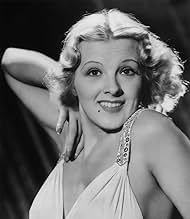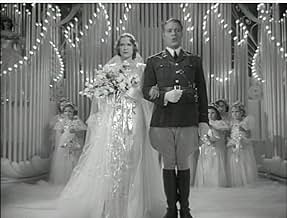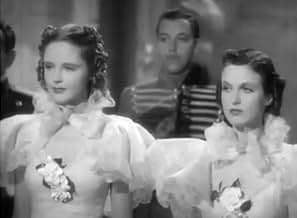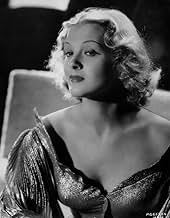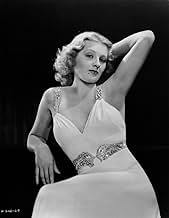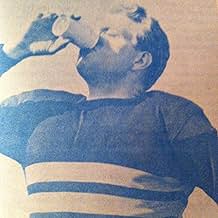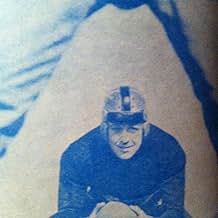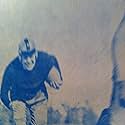West Point cadet Dick Thorpe falls in love with a girl, who turns out to be a princess from an European kingdom.West Point cadet Dick Thorpe falls in love with a girl, who turns out to be a princess from an European kingdom.West Point cadet Dick Thorpe falls in love with a girl, who turns out to be a princess from an European kingdom.
- Director
- Writers
- Stars
- Awards
- 1 win total
Carol Adams
- Dancer
- (uncredited)
Kay Aldridge
- Lady in Waiting
- (uncredited)
- Director
- Writers
- All cast & crew
- Production, box office & more at IMDbPro
6.0642
1
2
3
4
5
6
7
8
9
10
Featured reviews
5B24
A Mixed Bag
Writing comments about a movie like this one is difficult. The plot and dialogue are atrocious, but the score and visuals are first rate. So one splits the difference and gives it a "5." As some of the few comments thus far have implied, it is a formulaic comedy with loads of prominent character actors of the time reprising roles already played in other movies and on the radio. Audiences in 1937 were for the most part captive to that sort of thing. Diversity of tastes like that of today just did not exist, and everyone going to the movies in small-town America was inclined to go along with the gag mainly because it was literally the only show in town.
When as a lad I paid my 9 cents admission at the box office, I knew I was going to sit through anything they threw at me, including the newsreel at the beginning, the same old cartoons, a dumb serial episode with someone falling off a moving train at the end -- to be continued -- and a main feature in black-and-white that depended more on stock characters and situations than on anything new or scandalous.
Now I watch these same features on Turner Classic Movies with moody nostalgia and total suspension of disbelief. So what if Nelson Eddy at nearly 40 was playing a cadet of half that age? And what about my now knowing that his off-screen person was 180 degrees off the roles he played? His singing is still mesmerizing, an operetta voice the likes of which disappeared ages ago -- indeed a relic of the Nineteenth Century. Even an uncharacteristically inferior Porter tune like "Rosalie" gets a high-class treatment.
Sure, there are better musicals from the 30's, but this one is a piece of history as well as a minor work of art.
When as a lad I paid my 9 cents admission at the box office, I knew I was going to sit through anything they threw at me, including the newsreel at the beginning, the same old cartoons, a dumb serial episode with someone falling off a moving train at the end -- to be continued -- and a main feature in black-and-white that depended more on stock characters and situations than on anything new or scandalous.
Now I watch these same features on Turner Classic Movies with moody nostalgia and total suspension of disbelief. So what if Nelson Eddy at nearly 40 was playing a cadet of half that age? And what about my now knowing that his off-screen person was 180 degrees off the roles he played? His singing is still mesmerizing, an operetta voice the likes of which disappeared ages ago -- indeed a relic of the Nineteenth Century. Even an uncharacteristically inferior Porter tune like "Rosalie" gets a high-class treatment.
Sure, there are better musicals from the 30's, but this one is a piece of history as well as a minor work of art.
Powell at West Point
The film has two Cole Porter songs -- "Rosalie" and "In the Still of the Night." For several bars of the latter, we see the back of Nelson Eddy as he sings to the back of Eleanor Powell. This daring shot is superb, because we can feel the effect of the song on both. Eddy is stiff, except when he sings. That stiffness is partly in the role as West Point cadet, but it's mostly Nelson. Powell has a great production number in her native Romanza, to which the unsuspecting Eddy has pursued her. Powell's best moments, though, occur as she commands a crack West Point drill team to the strains of "The Stars and Stripes Forever." The Souza march changes from 4/4 to waltz time for a Powell solo. The drill is an imaginative sequence that takes advantage of Powell's incredible skills. After all these years, you still say "Wow!" Frank Morgan is endearing as a king with an eye for the girls, while Edna May Oliver is completely convincing as his forever-angry wife. A couple of good moments occur when Morgan's puppet insults the Queen, speaking, as it were, for its puppeteer. Ray Bolger is completely wasted as Eddy's friend and Billy Gilbert's scenes, in which he sneezes over all bystanders, should have tasted the cutting room floor. But for its several great moments, this one is worth watching.
Half good; half bad
The first half of this classic movie musical is good. The second half was a big disappointment.
The first half is interesting with likable characters and a couple of good song- and-dance numbers. The second half features a sappy romance and drags on too long.
Frank Morgan doesn't help things. His "bumbling king" character simply gets irritating after awhile. Eleanor Powell is miscast as a romantic "princess" lead. She just isn't that pretty or convincing as an actress. As everyone knows, she was a far better dancer than an actor
Nelson Eddy's singing is okay but, boy, does it sound corny and dated nowadays. Ray Bolger's comedy isn't funny; it's stupid.
On the positive side, some of the elaborate Busby Berkeley-type dance sets are elaborate and astounding. It's amazing to view. Powell's tap dancing is always entertaining, although I've seen better numbers from her in the Broadway Melody series.
The first half is interesting with likable characters and a couple of good song- and-dance numbers. The second half features a sappy romance and drags on too long.
Frank Morgan doesn't help things. His "bumbling king" character simply gets irritating after awhile. Eleanor Powell is miscast as a romantic "princess" lead. She just isn't that pretty or convincing as an actress. As everyone knows, she was a far better dancer than an actor
Nelson Eddy's singing is okay but, boy, does it sound corny and dated nowadays. Ray Bolger's comedy isn't funny; it's stupid.
On the positive side, some of the elaborate Busby Berkeley-type dance sets are elaborate and astounding. It's amazing to view. Powell's tap dancing is always entertaining, although I've seen better numbers from her in the Broadway Melody series.
Not very easy to rate
A film with the likes of Frank Morgan in support, a wonderful tap dancer such as Eleanor Powell and Nelson Eddy who possessed perhaps the most beautiful baritone voice on film does promise a fair bit. Sadly this promise is not exactly lived up to and it is one of those films that is difficult to rate. There are some definite good things. It is a very sumptuous film in the costumes and sets and it's beautifully shot. The music features a pleasant score from Cole Porter and the song In the Still of the Night is a catchy and beautiful song, while the choreography dazzles in energy(very like how Ilona Massey dazzles in her beauty)- especially in the title number- providing the film's best moments. Eddy sings divinely and Powell's tap dancing is equally a wonder, in support Frank Morgan is amusingly bumbling and Edna May Oliver is her usual solid self. Ray Bolger is however wasted and not funny at all, agreed that stupid is more like it, and Billy Gilbert's shtick here comes across as crass. While Eddy is on top form vocally, he is stiff and looks miserable, not showing much chemistry with Powell excepting some cute moments. The script is lacking in wit, sometimes soppy, sometimes crass and veers on bizarre. And while the story has great song and dance numbers and nice likable moments in the first half, it is mostly dull, predictable and the second half(not helped by an overly-sappy and underdeveloped romance) just doesn't engage. All in all, a mixture of good and bad, not easy to rate. 5/10 Bethany Cox
How did this happen?
Take a major studio studio (MGM) celebrated for its musicals. Take a top director (Woody Van Dyke) known for his breezy direction of films like THE THIN MAN, SAN FRANCISCO and NAUGHTY MARIETTA, among many others. Take a handsome singing star (Nelson Eddy) who was the studio's biggest matinee idol at the time, getting more fan mail than Clark Gable. Take a charming young tap-dancing star (Eleanor Powell). Take a score by Cole Porter written especially for the picture, including `In the Still of the Night.' Add some popular supporting actors like Frank Morgan, Ray Bolger, and Edna May Oliver, and, for those few who find a professional sneezer amusing, Billy Gilbert.
Take all these elements, spend a small fortune on sets and costumes, and turn out a picture which is among the worst ever made. It's inexplicable. The full-throated Eddy has been turned into a crooner, playing the world's oldest (36) West Point Cadet. Powell's dancing is sprightly but the big centerpiece number, danced on a series of huge drums, can only be called bizarre, Poor Frank Morgan is forced to do most of his performing with a ventriloquist's dummy. There are one or two cute scenes---Powell and Eddy obviously like each other---but mainly this picture is simply awful. What a waste.
Take all these elements, spend a small fortune on sets and costumes, and turn out a picture which is among the worst ever made. It's inexplicable. The full-throated Eddy has been turned into a crooner, playing the world's oldest (36) West Point Cadet. Powell's dancing is sprightly but the big centerpiece number, danced on a series of huge drums, can only be called bizarre, Poor Frank Morgan is forced to do most of his performing with a ventriloquist's dummy. There are one or two cute scenes---Powell and Eddy obviously like each other---but mainly this picture is simply awful. What a waste.
Did you know
- TriviaThe singing voice of Eleanor Powell was dubbed by Marjorie Lane (uncredited).
- GoofsDuring the 'drum dance' sequence there are three rows of huge drums all sounding together. The drum sticks on the front row are synchronized so that they all hit the drum at the same time. The drum sticks in the second and third rows are out of synch with the first row yet their sound is in synch.
- ConnectionsEdited into Hollywood: The Dream Factory (1972)
- SoundtracksRosalie
(1937) (uncredited)
Written by Cole Porter
Played during the opening credits and as background music often
Sung by Nelson Eddy
Danced by Eleanor Powell on a set of giant drums at the festival
Reprised by Nelson Eddy at the end
- How long is Rosalie?Powered by Alexa
Details
Box office
- Budget
- $2,000,000 (estimated)
- Runtime
- 2h 3m(123 min)
- Color
- Aspect ratio
- 1.37 : 1
Contribute to this page
Suggest an edit or add missing content



